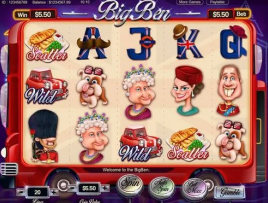ments made in Henan | feels good to be bad eliza ibarra seth gamble | Updated: 2024-11-27 23:45:18

# The Essential Guide to Lucky Pinoy: A Cultural Phenomenon
The Philippines is a country rich in diverse cultures and traditions, one of which includes the concept of "Lucky Pinoy." This article delves into what Lucky Pinoy is, its significance, and how it reflects Filipino values and beliefs.
## 1. What is Lucky Pinoy?
Lucky Pinoy refers to the belief that certain symbols, colors, and items can bring good fortune to Filipinos. This cultural phenomenon is not only about individual luck; it exemplifies communal ties and shared experiences that bind the Filipino community together.
### 1.1 Historical Context
The idea of luck is deeply rooted in Filipino folklore. Historical influences from various cultures, including Chinese and indigenous Filipino beliefs, have contributed to the development of practices surrounding luck and fortune.
### 1.2 Modern Interpretation
In modern times, Lucky Pinoy has evolved to include social media trends, wherein individuals share their personal lucky items or rituals. This blend of traditional beliefs with contemporary platforms illustrates the dynamic nature of Filipino culture.
## 2. Common Symbols and Items
Various symbols are believed to attract good luck among Filipinos. These range from ordinary objects to culturally significant icons.
### 2.1 Colors
Certain colors hold specific meanings in Filipino culture. For example, red is associated with prosperity and happiness, making it a popular choice during festivities.
### 2.2 Amulets
Filipinos often carry amulets known as **“anting-anting.”** These charms are believed to provide protection and bring blessings to their holders.
### 2.3 Food
Food also plays a vital role in attracting luck. Specific dishes like **“pancit”** (noodles) symbolize long life and prosperity, making them staples during celebrations.
## 3. Celebrating Luck
Filipinos have various ways of celebrating luck, particularly during festive occasions.
### 3.1 New Year’s Traditions
New Year’s Eve rituals are steeped in practices meant to attract good fortune for the year ahead. Filipinos often wear polka dots, make noise, and prepare specific foods to ensure a prosperous year.
### 3.2 Festivals
Local festivals, such as the **Sinulog** and **Ati-Atihan**, also highlight the importance of luck. Parades, dances, and rituals enhance community spirit and bring participants hope for favorable outcomes.
## 4. The Role of Community in Lucky Pinoy
The belief in Lucky Pinoy transcends individual practice—it fosters community interaction and solidarity.
### 4.1 Shared Beliefs
through shared customs and traditions, individuals feel a sense of belonging. Community celebrations often bring together families and friends, reinforcing bonds and collective identity.
### 4.2 Support Systems
In times of adversity, the concept of Lucky Pinoy provides emotional support. Filipinos often look to each other for comfort, sharing lucky symbols or stories that uplift spirits.
## 5. Conclusion
Lucky Pinoy is more than just superstition; it represents the essence of Filipino culture—community, hope, and resilience. Understanding this phenomenon gives insight into the values instilled in Filipinos, promoting unity and shared aspirations for a prosperous life.
As these traditions adapt to modern times, they continue to enrich the lives of Filipinos by weaving past beliefs with present realities. Whether through colors, foods, or rituals, Lucky Pinoy embodies a lasting cultural legacy that resonates deeply within the Filipino spirit.
*Word Count: 532*



